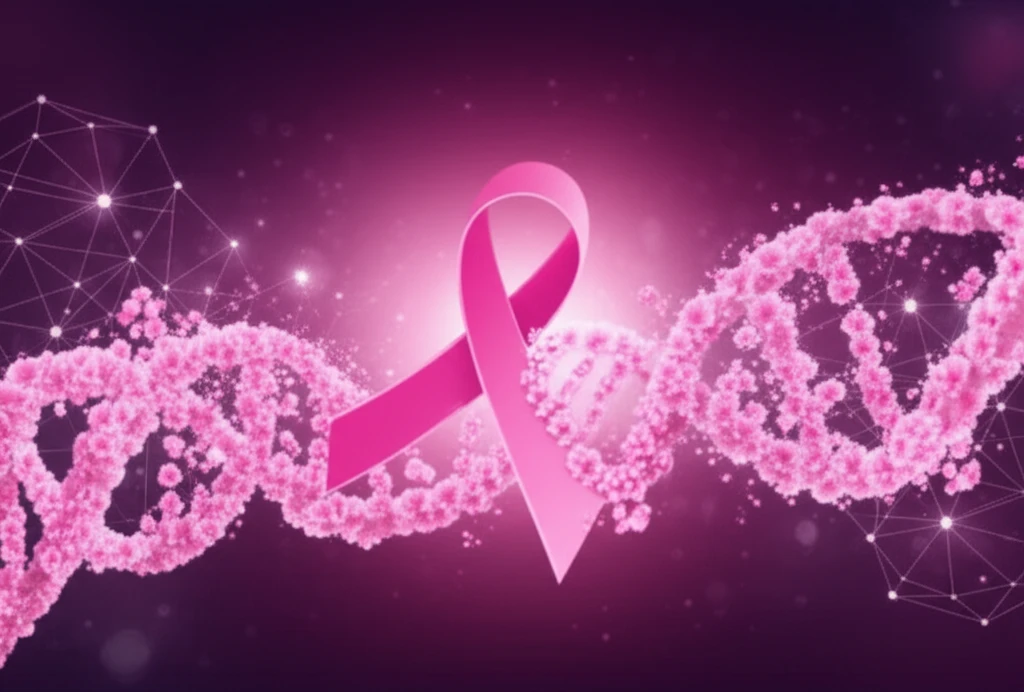
Decoding Breast Cancer Risk: Can Your Genes Predict Recurrence?
"New research identifies a genetic marker that could help personalize breast cancer treatment and improve outcomes, especially for those with triple-negative breast cancer."
Breast cancer is a complex disease, influenced by a mix of genetic and environmental factors. While we've made strides in identifying genes that increase susceptibility, predicting which women will experience a recurrence remains a challenge. This is crucial because relapse is a major driver of mortality in breast cancer patients.
Chemokines and their receptors play a significant role in cancer progression. Chemokine decoy receptors (CDRs) act as scavengers, essentially neutralizing chemokines that can promote tumor growth and spread. Two key CDRs, DARC and CCBP2, have been found to play a protective role in breast cancer.
This article delves into a study that investigates how variations in the genes encoding DARC and CCBP2 might affect breast cancer recurrence. By understanding these genetic nuances, we could potentially refine treatment strategies and improve long-term survival, particularly for aggressive subtypes like triple-negative breast cancer (TNBC).
The Genetic Link: How DARC rs12075 Impacts Recurrence Risk

Researchers analyzed two specific single nucleotide polymorphisms (SNPs) – rs12075 in the DARC gene and rs2228468 in the CCBP2 gene – in a group of 806 women with primary breast cancer. They wanted to see if these genetic variations were linked to recurrence-free survival (RFS), meaning the length of time after treatment before the cancer returned.
- rs12075 (DARC): Patients with the GG genotype showed a statistically significant higher recurrence risk (HR = 0.54, P = 0.027).
- rs2228468 (CCBP2): No significant association was found between this SNP and relapse risk (HR = 0.80, P = 0.222).
The Future of Personalized Breast Cancer Treatment
This research suggests that the rs12075 variant in the DARC gene could be a valuable tool for predicting recurrence risk in breast cancer, especially in TNBC. This information could help doctors personalize treatment plans, potentially leading to better outcomes.
However, it's important to remember that this is just one study, and more research is needed to confirm these findings in larger and more diverse populations. Future studies should also explore how rs12075 interacts with other genetic and clinical factors to influence recurrence risk.
Ultimately, the goal is to develop comprehensive genetic profiles that can accurately predict an individual's risk of breast cancer recurrence and guide treatment decisions. By understanding the complex interplay of genes and cancer, we can move towards a future of truly personalized medicine, improving the lives of women affected by this disease.
